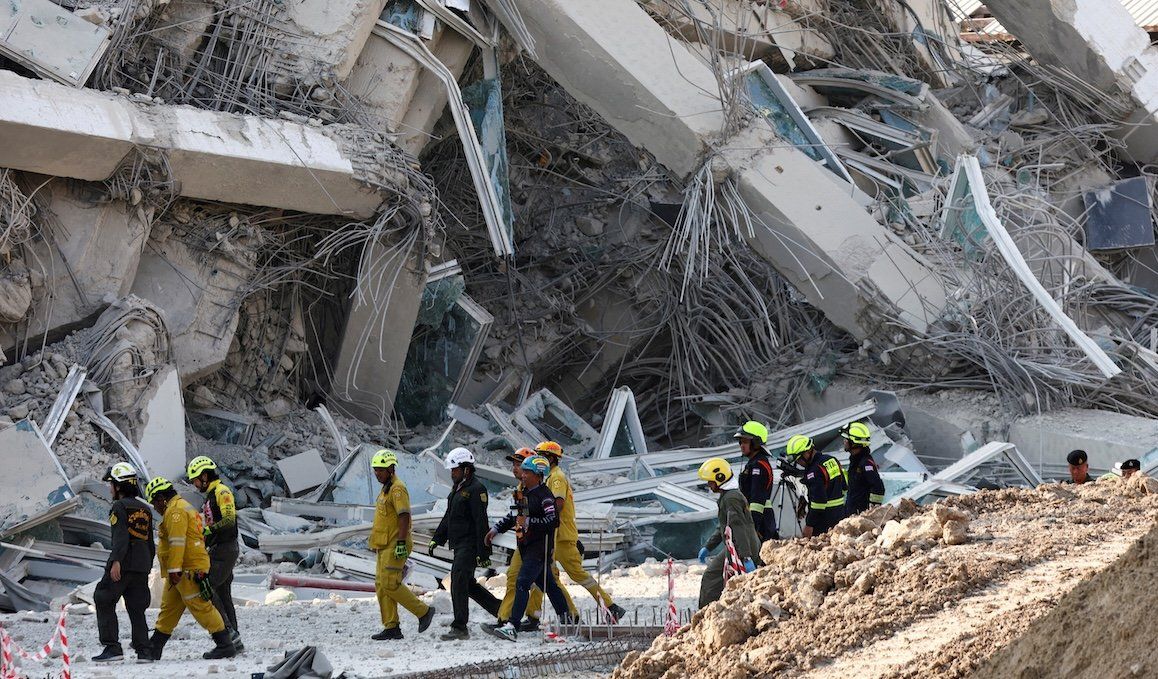7.7: Two disastrous earthquakes, the first of 7.7 magnitude, struck Myanmar on Friday, destroying vital infrastructure across Southeast Asia. Videos of a collapsed bridge in Mandalay, Myanmar, and a fallen building in Bangkok, Thailand, have emerged. The number of casualties isn’t yet known, although several are feared trapped under a fallen skyscraper in the Thai capital. At least 144 people have been confirmed dead.
71,000: Israel’s right-wing government on Thursday passed a contentious law to allow politicians greater sway in judicial appointments, despite some 71,000 opposition amendments. The move is a part of the judicial overhaul that protesters have been fighting for over a year and comes amid Prime Minister Benjamin Netanyahu’s corruption trial.
125: Since the US election, Fox News has gained 125 new high-profile advertisers as Rupert Murdoch’s cable network continues to draw soaring viewership during President Donald Trump’s second term. Businesses such as Amazon, GE Vernova, JPMorgan Chase, Netflix, and UBS have recently run ads on Fox News for the first time in over two years.
5.7 million: According to a new World Bank study, 5.7 million people are killed annually by air pollution. The global institution is calling on countries to take an integrated approach to halve the number of people breathing unhealthy air by 2040 and points to places like Mexico City, which has successfully curbed pollution, and Egypt and Turkey, which have put financing mechanisms in place to support emission reduction.
20,000: The Trump administration announced Thursday that it will cut 20,000 positions from the Department of Health and Human Services – 10,000 from job cuts and 10,000 from voluntary departures – as part of a major restructuring that its chief, Robert F. KennedyJr., says “will do more — a lot more — at a lower cost to the taxpayer.” RFK says the reorganization is intended to help the department prioritize the fight against chronic diseases, but critics fear it could hinder the critical agency, which includes Medicare and the Federal Drug Administration. And throughout the federal government, officials are planning for between 8% and 50% staff cuts, according to an internal White House document obtained by the Washington Post.
19: Two weeks after the Trump administration dropped its first bombs on Houthi rebels in Yemen — details of which were revealed over the now-infamous Signal chat — the United States is believed to have attacked again early Friday, firing at least 19 strikes. The extent of the damage is unclear, although the intensity of the bombardment has increased since the Biden administration first started pounding the Houthis.
